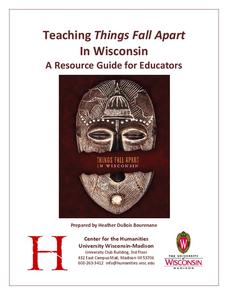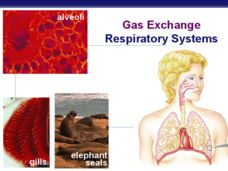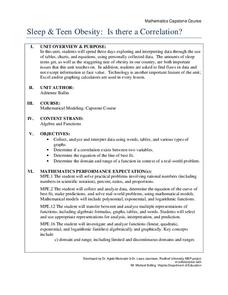Curated OER
When is a Noun a Verb? Examining Double Duty Words
Act and act, address and address...there are so many words in our dictionary that can function as nouns or verbs. Start this lesson by having your class list as many as they possibly can. When an adequate list presents itself, have your...
Curated OER
What Are Homophones?
A fun activity for homework, a warm-up, or a substitute day! Learners choose the correct word out of a set of homophones, such as made/maid and pale/pail, based on context clues in each sentence. There are twenty-two questions in all....
Polar Trec
What Is My Footprint?
How do one's habits and lifestyle choices affect the environment? Through a short online survey, learners will calculate their own carbon footprints then determine how to reduce their impact on the environment through simple steps, such...
University of Colorado
Are All Asteroids' Surfaces the Same Age?
There are more than 600,000 asteroids in our solar system. Pupils analyze images of two asteroids in order to determine if they are the same age. They count craters for each asteroid and compare numbers.
Curated OER
Is It Ethical to Eat Meat?
Have your class join a blog about whether or not eating meat is good for you. They'll read several passages regarding meat processing and consumption, then they post what they think. There are six critical-thinking prompts to help them...
WindWise Education
When is a Wind Farm a Good Investment?
When will a wind farm pay for itself? Individuals calculate the anticipated annual revenue for two proposed wind farms. By comparing the number of years it takes to pay back the initial investment, they determine which site makes the...
Curated OER
Their vs. There vs. They're Quiz
Do your pupils need extra practice with often-confused words? There are five opportunities on this quiz for your pupils to demonstrate they’re able to tell the difference between these words. They can even put the quiz in their notebooks.
University of Wisconsin
Teaching Things Fall Apart in Wisconsin: A Resource Guide for Educators
“There is no story that is not true, . . .” And uncovering the truths in Things Fall Apart is the focus of a 68-page resource packet designed to provide instructors with a wealth of materials that enhance understanding of Chinua Achebe’s...
Mt. San Antonio Collage
Review: Solving Equations
While there are many types of equations to solve, the main focus here is on quadratics. Starting with a quick review of the different methods, learners are guided through the solving process and are challenged to solve higher level of...
Curated OER
Unit 1: Water is Life: The Heart and Science Behind this Phrase
Water, water, everywhere — but will there be enough to drink? Check out these detailed lesson plans to meet NGSS water cycle and CCSS literacy standards in your science classroom. Learners do a close reading of a challenging, poetic text...
New South Wales Department of Education
Is it Alive?
Interestingly enough, movement is not a characteristic of living things. The first activity in a series of 20 introduces learners to the concepts of living versus non-living things and then focuses on biologists and what they study....
Wind Wise Education
Where is it Windy?
How is the wind up there? The class builds a topography model using materials available in the classroom, then place wind flags in different locations on the landscape. Using a fan as a wind source, pupils collect data about how wind...
Curated OER
ASL 1: Lesson 1
Experience lesson one of an extensive American Sign Language series! Whether you are teaching ASL or learning it as a communication tool to use in your special education class, this lesson is great! Foundational signs, such as finger...
DK Publishing
Addition Fact Families
Fact families are an excellent way to connect math operations for beginners to addition and subtraction. Use the examples here to review this concept before scholars try these on their own. For each, they examine two related number...
Curated OER
Gas exchange: Respiratory Systems
The need for a respiratory system in humans versus being reliant on gas exchange structures is demonstrated. There are many details about the advantages and disadvantages of each mechanism. Students are able to learn about the...
Alabama Learning Exchange
Ice Fishing is for the Birds
Approach addition with young mathematicians in an engaging way through this penguin-inspired activity. In small groups, scholars think about times they have used addition in their real lives (there are some suggestions given), then watch...
Curated OER
Paper Suspension Bridges: You Want Me To Go Up There?
A few class periods will be required to complete this physics investigation with your high schoolers. There is an unavailable video written into the lesson plan, but there is plenty of material here to bridge the gap. Two terrific...
Curated OER
What Time Is It?
Take down that digital clock! Scholars practice reading an analog clock face with the minute hand on various quarter-hour increments. They write the correct time below nine clocks, each of which have the hour hand in green and the minute...
Radford University
Sleep and Teen Obesity: Is there a Correlation?
Does the number of calories you eat affect the total time you sleep? Young mathematicians tackle this question by collecting their own data and making comparisons between others in the class through building scatter plots and regression...
Curated OER
A Goldfish is the Best Pet
Provide your class with a list of possible topics (three are included here, but they're not exactly gripping), and polish their persuasive writing skills. This plan really emphasizes the prewriting process, and several graphic organizers...
Hastings Prince Edward Public Health
What is Health?
Many indicators of health are beyond a teenager's control, but there are many changes they can make in their daily life that can improve their health. Middle schoolers think about their physical, social, and mental health status before...
Curated OER
Is Grandpa Right, Were Winters Colder When He Was a Boy?
Young scholars compare current weather data to historic data to see if there is a temperature change. In this weather instructional activity students complete a lab activity and determine average changes in temperature, precipitation...
Curated OER
Are Beds Made of Balsa Wood?
Here is an interesting resource which describes different kinds of wood and their uses. There is a table with six different types of furniture wood listed, and the number of worm holes found in each one. Based on the information in the...
NOAA
Deep-Sea Ecosystems – Life is Weird!
A pool of brine in the deep sea can be up to four times as salty as the surrounding sea water. The deep sea ecosystem relies on chemosynthesis and the organisms that live there are often strange to us. The lesson focuses on researching...

























